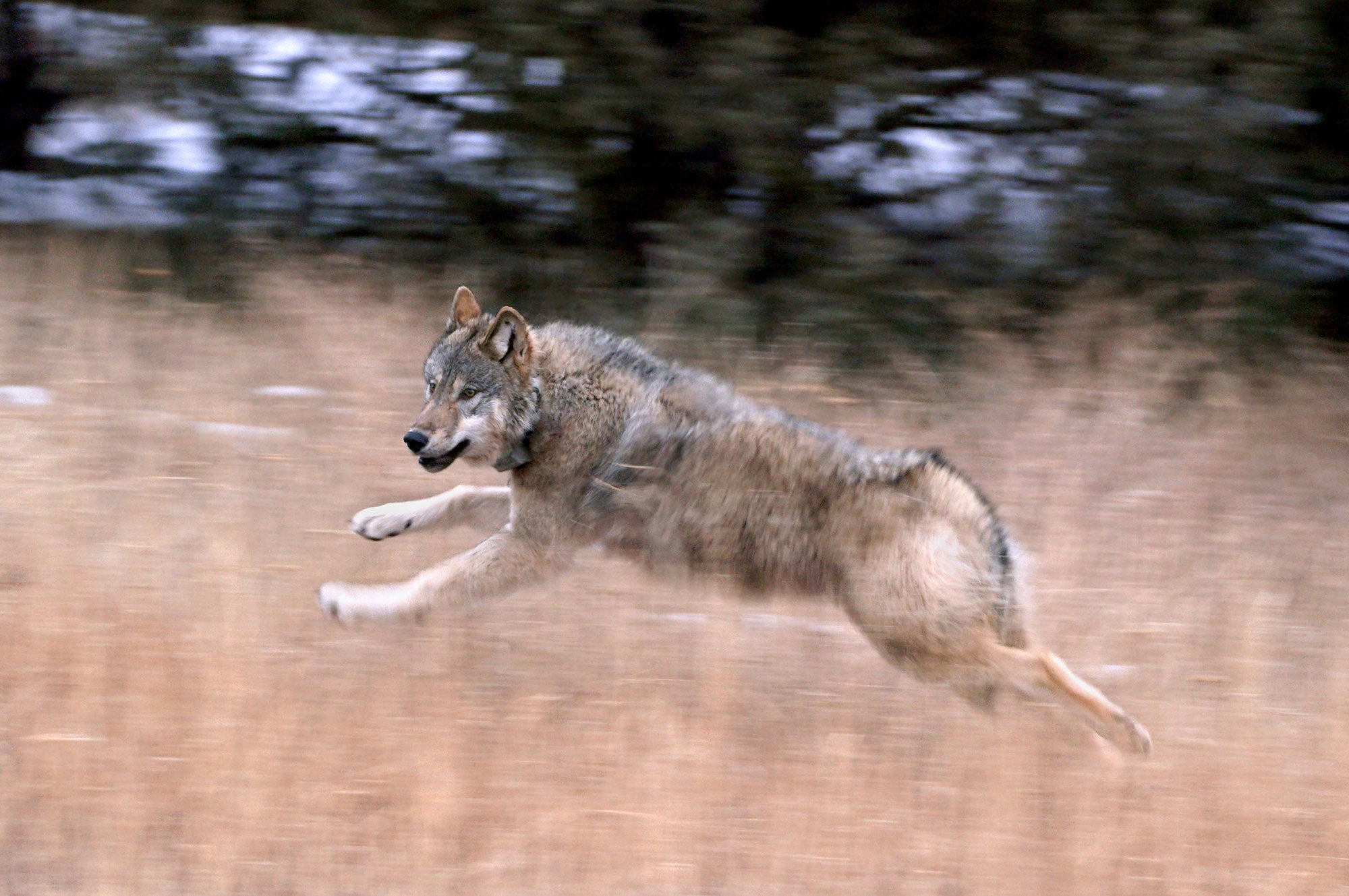Legal Organizations: Colorado on Solid Footing to Release Wolves from Canada
10(j) rule identified one possible source of wolves, not a mandated population
Contacts
Perry Wheeler, Earthjustice, pwheeler@earthjustice.org
According to a CBS News report, former congressman Greg Lopez — alongside livestock industry groups — sent a letter to the U.S. Fish and Wildlife Service (USFWS) claiming that Colorado’s plan to reintroduce gray wolves from Canada would violate a federal rule. Earthjustice, Western Environmental Law Center, and Defenders of Wildlife — legal organizations that successfully defended the reintroduction effort in court from a 2023 challenge and have extensively reviewed the rule — unequivocally state that the congressman’s claim is incorrect and that Colorado has the flexibility to source gray wolves from Canada as needed.
The rule in question, issued by the U.S. Fish and Wildlife Service under the Endangered Species Act, governs post-release management of wolves in Colorado. While the rule’s preamble states that “the preferred donor population” for the reintroduction of gray wolves to Colorado is the delisted northern Rocky Mountain (NRM) population, which includes wolves from Idaho, Montana, Wyoming, and portions of Oregon, Washington, and Utah, it does not provide that the NRM population is the only source available. Nor could it, as the rule addresses wolf management and applies only in Colorado, so wolf capture activities elsewhere fall outside the rule’s legal scope.
Furthermore, the environmental impact statement issued with the rule expressly notes that wolves can be sourced elsewhere as needed: “if donor wolves from the western United States are not available, another possible source of gray wolves for the Colorado reintroduction may be the wolf population in the western Great Lakes states of Michigan, Minnesota, or Wisconsin.” While the document does not expressly mention Canada, it plainly recognizes that wolves can come from locations other than the NRM population. Indeed, Colorado acquired wolves from British Columbia for releases conducted last winter, without objection from USFWS.
The legal organizations view the claim of illegality to be nothing more than the latest misguided attempt to derail the voter-mandated reintroduction of gray wolves in Colorado. In August, a Colorado anti-wolf ballot measure initiative failed to gather enough signatures to move forward. The Colorado Parks and Wildlife Commission rejected a separate livestock industry petition to pause the reintroduction in early 2025. Conservation groups also successfully intervened in defense of reintroduction in late 2023 with a District Court judge denying a request by the livestock industry to stop wolf releases.
“The state of Colorado is on solid legal footing to continue its wolf reintroductions, including by releasing wolves from Canada as needed,” said Thomas Delehanty, senior attorney with Earthjustice’s Rocky Mountain Office. “The 10(j) rule does not mandate that Colorado’s wolves come from specific states, period. Congressman Lopez and the livestock industry are simply wrong in suggesting otherwise, and we’d all be wise to see their effort for what it is: another thinly veiled attempt to throw sand in the gears of a democratic process that they lost.”
“Our political leaders should not be spreading baseless claims of illegality at the behest of special interests unhappy with Colorado’s admirable effort to restore gray wolves to the state’s natural ecosystem in accordance with the majority of the state’s voters,” said Kelly Nokes, an attorney with the Western Environmental Law Center’s Colorado office. “Wolves are making a remarkable — and valuable — comeback, despite being undermined by political ploys such as this. We will continue to defend the reintroduction effort in the face of such illegitimate legal threats.”
“The 10(j) rule is about post-release wolf management, it does not dictate where Colorado can source gray wolves from,” said Lisa Saltzburg, senior attorney at Defenders of Wildlife. “These claims are twisting language that is not even part of the rule itself out of context. It’s so disappointing to see them make headlines. Coloradans should be proud of their state’s leadership in conservation and coexistence, and the wolf reintroduction program illustrates those values.”

Additional Resources
About Earthjustice
Earthjustice is the premier nonprofit environmental law organization. We wield the power of law and the strength of partnership to protect people's health, to preserve magnificent places and wildlife, to advance clean energy, and to combat climate change. We are here because the earth needs a good lawyer.